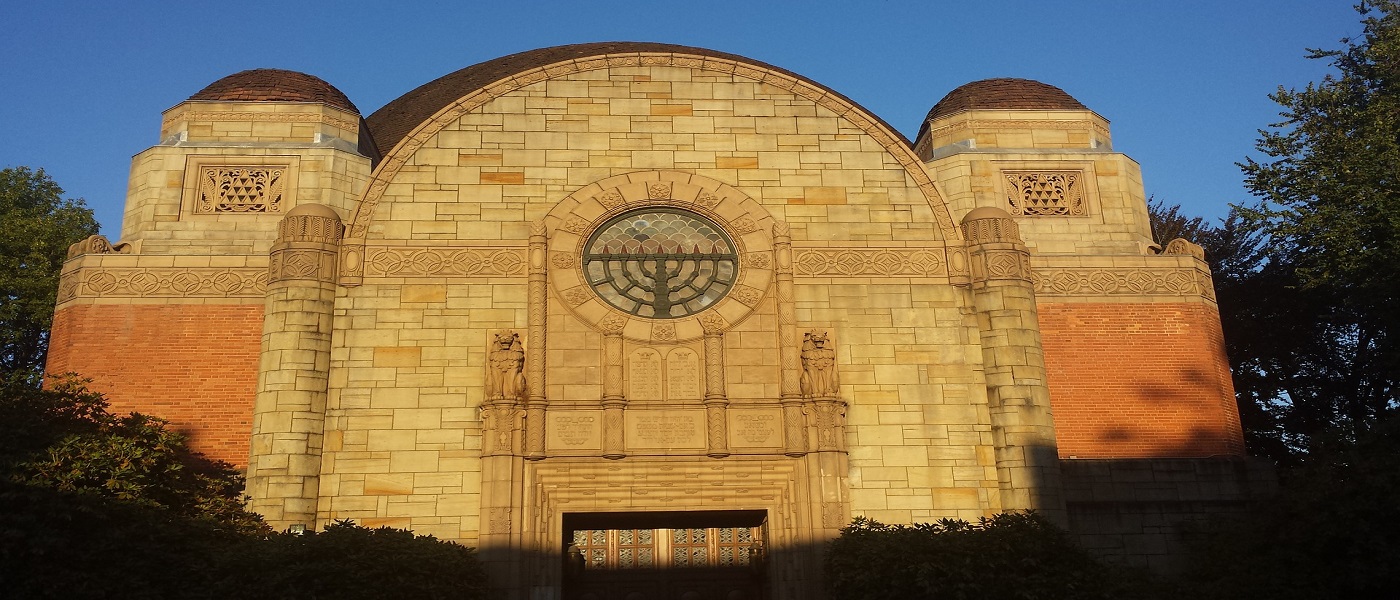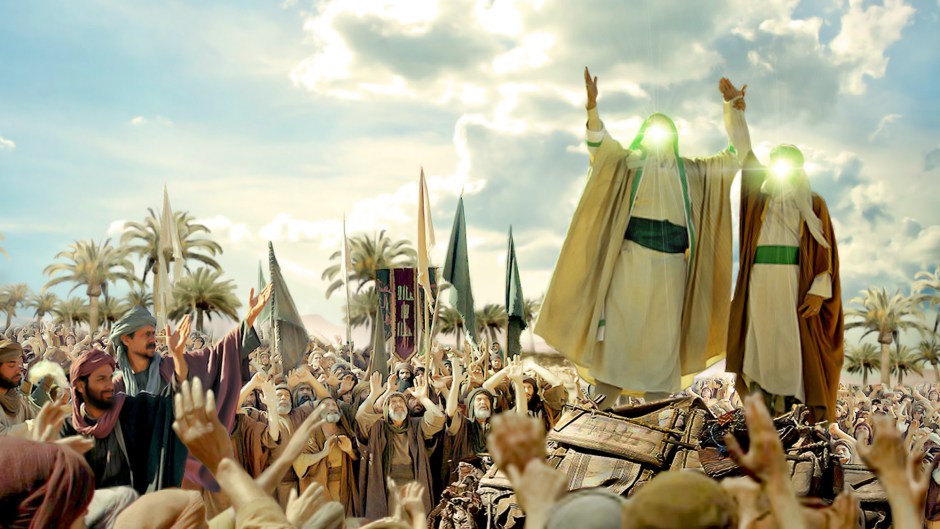

5 Questions that Reveal Imam Hussain (AS) Was against War
Looking at Imam Hussain (AS)'s movement and the incidents that took place on Karbala, one might wonder if Imam Hussain (AS) ever had the intention of going to war with Yazid or not. In what follows, we raise some questions that will reveal Imam Hussain (AS)'s real attitude toward war.
1. Why Would He Leave Medina to Mecca?
He did not wish to take the oath of allegiance of a ruthless and corrupt person as Yazid, so he decided to peacefully migrate from Medina to Mecca in which many people had not accepted Yazid’s oath of allegiance yet. In his will which he wrote before leaving Medina, he says:
“I am not leaving here out of selfishness or with the aim of oppression or corruption, but for the sake of improving Muslims’ condition of life. I want to enjoin the right (Amr bi-l-ma’ruf) and forbid the wrong (Nahy’ ani-l-munkar) and to act according to Prophet Muhammad (PBUH&HP)’s and Imam Ali’s (AS) way”.
2. Why Did Imam Hussain (AS) Take All His Property and His Family with Him?
His first motivation to leave Medina was migration, not war. So he left Medina to Mecca along with his family and companions without making any violent move against Yazid. On the day of Ashura on which Imam Hussain (AS) was martyred, 17 to 19 people of his family and relatives were among his companions, including some women and children. Among the martyrs of Karbala, also, there were five teenagers and children. One might ask, as Charles Dickens once asked if Imam Hussain (AS) were after worldly desires as taking over the throne, why would he take his family and children with him and risk their lives?
3. Why Would He even Go to Kufa? Should He Have Left Kufa People’s Letters Unresponded?
Imam Hussain (AS) had no intention of going to Kufa, but he was persuaded to do so by the many letters he received from Kufa people asking him to help them against Yazid’s tyranny. His speech in front of Hur’s army proves this fact:
“O’ people! This is my last word to you so that there would be no excuse in Allah’s presence. I would not come to you if you had not sent your letters and messengers and asked me to come to you. You told me that you didn’t have a leader and wanted Allah to guide you through me. So, if you still keep your words, I will come to your city, and if you don’t want me to come, I will return.”
4. Why Did He Refuse to Fight with Hur’s Army Despite His Strength?
When surrendered by Hur and his army, Zuhair, one of Imam Hussain’s (AS) companions, suggested fighting them. Since they were not still much in number and Imam Hussain’s (AS) camp had the strength to defeat them. However, Imam Hussain (AS) rejected his view and told him that if there would be a war, he did not wish to be its initiator, though he would defend himself if necessary.
5. Why Would He Wish to Postpone the War even for One More Day
Imam Hussain (AS) wanted to postpone the war as much as possible, not because he was afraid of fighting, but to give the enemy more time to think twice about their wrong decision. So, when on the evening of the 9th of Muharram, Umar ibn Sa’ad gathered his army and got them ready for the war, he sent them a message and asked them to postpone the war until the day after and he spent the night praying to Allah.
Even on the very day of Ashura, Imam Hussain (AS) did his best to dissuade the enemy of choosing the wrong path and losing the God-given blessing of life for a ruthless tyrant as Yazid and his vain intentions. That is because Imam Hussain (AS) who was the spiritual leader of Muslims and cared about their fate more than his own life, found it his responsibility to guide them toward what is right before it was too late [i].
Notes:
[i] For more information see Salam Islam's ebook: 40 Points about Imam Hussain (AS) and the Event of Karbala
Share This Article

Islam's View toward Judaism according to the Quran
Judaism in Islam is considered as one of the most significant monotheistic religions, and many verses of Quran are dedicated to describing the fate of the followers of this religion. In different verses of the Holy Quran, when Allah wants to mention people of Moses, He calls them “Children of Israel” (Bani-Israel). The reason for which is that they were the generation of Prophet Jacob or Israel (PBUH), who at the time of Prophet Joseph (PBUH), migrated to Egypt and settled there for years [1].
After Pharaohs gained power in Egypt, they started violence against the immigrant generation of Israel by “slaughtering their sons and sparing their women” (28: 4).
Then after so many years, during which Bani-Israel were waiting for a deliverer, Moses was appointed to save them and deliver them from Egypt to the holy land: “O my people, enter the Holy Land which Allah has ordained for you, and do not turn your backs, or you will become losers’” (5: 21). They did not accept to enter the holy land as they were afraid of the people of that land. Therefore, they lost their opportunity and were wandering in the deserts for years. There was no promise that if children of Israel do not act according to God’s orders, they will still inherit the holy land.
What happened to Jews after Moses?
“We dispersed them into communities around the earth: some of them were righteous, and some of them otherwise, and We tested them with good and bad [times] so that they may come back” (7: 168).
Like any other monotheistic religion that has good or bad followers, the followers of Judaism are either virtuous or sinful according to the above verse of the Holy Quran.
The bad Jews, mainly known to be Zionists, are those who are committing great sins and have huge racist beliefs. Since they believe they are the higher race and others are somehow their properties. Zionism is not a religion, but a political branch that tries to gain power using any tools, even the religion of Jews.
Judaism in Islam and Quran
The Holy Quran introduces all prophets as Muslims [2]. Quran strongly defends Jewish believers like the believers of other religions; “Indeed the faithful, the Jews, the Christians and the Sabaeans - those of them who have faith in Allah and the Last Day and act righteously—they shall have their reward from their Lord, and they will have no fear, nor will they grieve” (2: 62).
Quran confirms the book of Moses and says: “We sent down the Torah containing guidance and light” (5:44). And in another verse, it says: “Yet before it, the Book of Moses was a guide and mercy, and this is a Book in the Arabic language, which confirms it…” (46: 12).
Muslims Should Act Respectfully towards Jews
Although Quran confirms that all the prophets were from God and they had the same message, the problem, according to the Quran, is that the book of Moses was distorted by those ignorant and arrogant followers of him.
Accordingly, Islam was sent down to the followers of all prophets and the people of all nations and lands as a final and most complete religion, which was fundamentally the same as their religion. But all true believers and true followers of prophets should now be united in the way of worshipping One God and follow the book of Muhammad (PBUH), who has been mentioned in their books (7: 156-7).
God also warns Muslims that when they wish to convey His messages to the followers of other prophets, they should be respectful towards them: “Do not argue with the People of the Book except in a manner which is best, except such of them as are wrongdoers, and say, ‘We believe in what has been sent down to us and in what has been sent down to you; our God and your God is one [and the same], and to Him do we submit’” (29: 46).
As mentioned in the article on monotheism, from the Islamic point of view, the followers of other religions should realize the perfectness of Islam “despite the distorted image of Islam” in today’s world. They need to reach complete faith based on a firm understanding of Islam as the last and the complete way of life [3].
Respecting the Rabies
Since Jews were waiting for the last prophet and when some of them found him rise from among Arabs and not from amongst themselves, they denied him, since they had this thought that Islam must belong to a specific land or specific people, and it cannot be a complete universal religion for all lands at all times.
God mentions the rabbis with so much respect in the Quran and expects them to enlighten their people in worshipping one God and not to be fighting against each other while they worship the same God: “We sent down the Torah containing guidance and light. The prophets, who had submitted, judged by it for the Jews, and so did the rabbis and the scribes, as they were charged to preserve the Book of Allah and were witnesses to it...” (5: 44).
Conclusion
Going through the story of Prophet Moses (PBUH) and explaining it in details in the Quran had two major reasons:
1. Since when Muhammad was assigned as a prophet, Jews annoyed him in every possible way, God kept sending revelations regarding their past actions and their behavior towards Prophet Moses from whom they had seen many miracles.
2. The story of Jewish people and how they saw the miracles of their prophet and yet, they kept denying him, is repeatedly explained in the Quran, to be a lesson for Muslims. Muslims should remember that they had hard times, too, like the Jews, and they should not become arrogant because the last prophet was raised amongst them. Muslims should not make complaints against God’s orders, and by remembering the history of Jews, they should keep in mind that if they decline Allah’s commands, they will lose their opportunities since blessing is given to those who are God-wary:
“If the people of the towns had been faithful and God-wary, We would have opened to them blessings from the heaven and the earth. But they denied; so We seized them because of what they used to earn” (7: 96).
References:
- The Quran, Yousof (12), 93
- The Quran, Al-Shourea (42), 13
- jews in Islam
Read More

Ghadir Narrations part 2
21- Day of greetings
Imam Sadiq (AS) said:
The value of deeds on that day (Eid Ghadir) is equal to eighty months, and it is recommended to increase the remembrance of Allah and Salawat upon the Prophet (PBUH&HP) and his family.
22- The day of the leadership meeting
Imam Hadi (AS) said to Abu Ishaq:
On the day of Ghadir, the Holy Prophet (PBUH&HP) raised the hand of his brother Ali (AS) and introduced him as the flag bearer (and commander) of the people and the leader after him. Abu Ishaq said: I said, I beg your pardon, you are right. That is why I came to visit you, I testify that you are the authority of Allah over the people.
23- Takbir Day
Imam Reza (AS) said:
Whoever meets a believer on the day (Ghadir), Allah will send seventy lights on his grave and expand his grave, and every day seventy thousand angels will visit his grave and give him the good news of Paradise.
24- Day of meeting and goodness
Imam Sadiq (AS) said:
It is proper to get closer to Allah by doing good to others, fasting, praying, reaching out to relatives, and meeting the brothers of faith because the prophets did so and advised their people when they appointed their successors.
25- Prayer in Ghadir Mosque.
Imam Sadiq (AS) said:
It is recommended to pray in Ghadir Mosque because the Holy Prophet (PBUH&HP) introduced and appointed the Commander of the Faithful (AS) there. And that is where the great Allah revealed the truth.
26- Ghadir day prayer
Imam Sadiq (AS) said:
A person who prays two units (Rakat) at any time on the day of Eid Ghadir -and it is better to be close to noon, which is the time when the Commander of the Faithful (AS) was appointed leadership in Ghadir at that time- is like someone realized that day ...
27- Ghadir fast
Imam Sadiq (AS) said:
The fast of Ghadir day is equal to the fast of the whole life. That is if a person is always alive and fasts all his life, his reward is equal to the reward of fasting on Eid Ghadir.
28- Congratulations and smile day
Imam Reza (AS) said:
Eid Ghadir is a day of congratulations. Congratulations to each other, every time a believer meets his brother, he should say: "Praise be to Allah who has given us the success of grasping the guardianship of Imam Ali (AS) and the leaders." ...
Chapter 3: Guardianship in Ghadir
29- The Prophet and the guardianship of Ali (AS)
On the day of Ghadir, the Messenger of Allah (PBUH&HP) ordered: A preacher should call: Gather for prayer. Then he took the hand of Ali (AS), raised it and said:
O Allah, whoever I am the master of, so Ali is also his master, O Allah, love the one who loves Ali and be the enemy of the one who is at enmity with Ali.
30- Prophetic life
The Messenger of Allah (PBUH&HP) said:
Whoever wants to live and die like me and live in the eternal paradise that my Lord has promised me, will choose the guardianship of Ali ibn Abi Talib (AS), because he leads you not astray.
31- The Prophet and Imamate of Ali (AS)
I heard the Messenger of Allah (PBUH&HP) to say to Ali ibn Abi Talib (AS):
O Ali, you are my brother, guardian, heir and successor among my ummah during my life and after my death. Your friend is my friend and your vindictive is my enemy.
32- The foundations of Islam
Imam Baqir (AS) said:
Islam is based on five pillars: prayer, zakat, fasting, Hajj and Wilayah (Guardianship), and nothing has been called as much as what has been emphasized to Wilayah on the Day of Ghadir.
33- Immortal province
Imam Kadhim (AS) said:
The guardianship of Ali (AS) is recorded in the books of all the prophets and no prophet was sent except with the covenant of the prophethood of Muhammad (PBUH&HP) and the Imamate of Ali (AS).
34- Wilayah and Tawhid
The Messenger of Allah (PBUH&HP) said:
The guardianship of Ali (AS) is the guardianship of Allah, loving him is worshiping Allah, following him is a divine obligation and his friends are friends of Allah and his enemies are enemies of Allah, war with him, war with Allah, and peace with him, peace with Allah Almighty.
35- The day of the devil's wailing
Imam Baqir (AS) said:
Satan, the enemy of Allah, lamented four times: the day he was cursed by Allah, the day he fell to the ground, the day that Holy Prophet (PBUH&HP) was sent, and the day of Eid Ghadir.
36- Tawhid fort
The Holy Prophet (PBUH&HP) said:
God says: The guardianship of Ali is my stronghold, so whoever enters my fortress will be protected from the fire of Hell.
37- The successor of the Prophet
The Messenger of Allah (PBUH&HP) said:
O Ali, I am the city of knowledge and you are its door, do not enter the city except through its door. ... You are the leader of my nation and my successor in this city, whoever obeys you is blessed, and whoever disobeys you is miserable, and your friend has benefited and your enemy has lost.
38- Islam in the shadow of the province
Imam Sadiq (AS) said:
The cornerstones of Islam are three things:
Prayer, Zakat and Wilayah, none of which can be made without the other.
39- Ten thousand witnesses
Imam Sadiq (AS) said:
O Hafs! Surprising of what Ali (AS) encountered! He could not get his right with ten thousand witnesses (on the day of Ghadir), while a person with two witnesses gets his right.
40- Ali (AS), the commentator of the Quran
The Holy Prophet (PBUH&HP) said on the day of Ghadir:
Ali (AS) is the interpretation of the Book of Allah, and the inviter to Allah, be aware that what is lawful and what is forbidden is more than what I introduce and command and forbid and count them. So I was instructed to make a covenant with you to accept what I brought from Allah Almighty about Ali the commander of the faithful and his successors.
O people! Think and understand the divine revelations, pay attention to its courts and do not follow its similarities. I swear by Allah, no one can ever utter the verses of the Qur'an and clarify its interpretation, except the one whom I have taken (and introduced).
Read More

